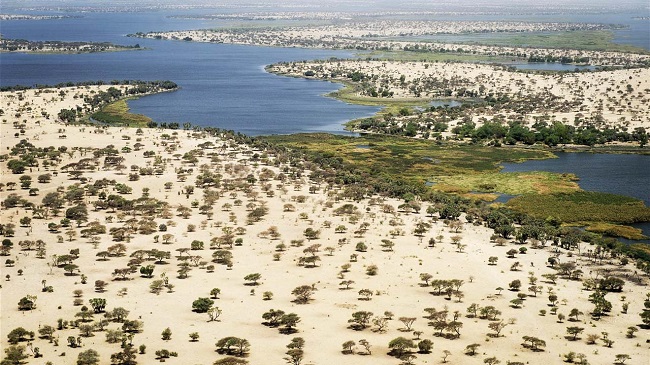The Executive Secretary, Lake Chad Basin Commission, Amb. Mamman Nuhu, has called on member countries to commence climate-resilience interventions like afforestation and inter-basin water transfer to promote the lake’s survival.

Nuhu made this call at an Experts’ Meeting in preparatory to the 68th Ordinary Session of the Council of Ministers of Lake Chad Basin Commission (LCBC) in Abuja on Thursday, November 24, 2022.
According to him, climate change is acting as a threat multiplier with extreme weather events, severe droughts, irregular rainfalls, water scarcity and devastating floods, to the lake’s survival.
He said insecurity, fueled by both widespread violence and climate change, had led to widespread displacement of people, farmers, herders, fishermen, women, and children in the region.
This, he noted, had led to hunger and deprivation, deepening cycles of poverty, fragility, and vulnerability.
“I am glad to note that the LCBC has since embarked on measures to address the root causes of these crises. There is need to turn these challenges into opportunities, which require your collective efforts.
“You all need to work collectively and inclusively as a united family to achieve the primary objectives of the Commission of creating a safe, stable, and prosperous basin for the benefit of the people.
“I believe you are on the right path, but there is still work to do to prioritise climate adaptation measures, build resilience, support food and crop production, soil and water conservation, and rehabilitation projects.’’
The executive secretary emphasised the need to mobilise resources, assist the poorest and most vulnerable communities to cope with, and adapt to, future climate-related shocks.
He urged member countries to deepen cooperation and integration to transform the region’s development, saying the complex and transboundary nature of the challenges made regional cooperation indispensable.
Nuhu hinted that the proposed Inter-Basin Water Transfer from River Congo would further improve livelihood for over 40 million people depending on the lake.
On insecurity, he said the Multi-National Joint Task Force had strengthened regional cooperation to promote peace, adding that this had ended displacement, and life returning to normal.
Nigeria’s Minister of Water Resources, Suleiman Adamu, said the LCBC had supported the six-member countries to meet the developmental challenges in the management of water resources within the basin.
Adamu, represented by the ministry’s Permanent Secretary, Mrs Didi Walson-Jack, said the Lake Chad Basin had been worsened by the effect of climate change.
This, she noted, had depleted the ability of the Lake Chad and its resources to sustainably support the over 40 million people that depend on it for their livelihoods.
“For about four decades, recurring droughts, a general decline in rainfall and degradation of the biodiversity have led to drastic changes in the environmental conditions of the Lake Chad Basin.
“The drying up of the Lake, the desert encroachment, and the decline of agricultural activities have been a major challenge to the social and economic well-being of millions of people living in the Basin.’’
He urged the experts to brainstorm on possible solutions to the many challenges plaguing the region.
Deliberations at the meeting included the implementation status of the Inter-Basin Water Transfer Project (IBWTP) and creation of the new Division of Regional Integration and Peace.
Others are the process of “Entry into force” of the Lake Chad Basin Water Charter, among others.
By Tosin Kolade
